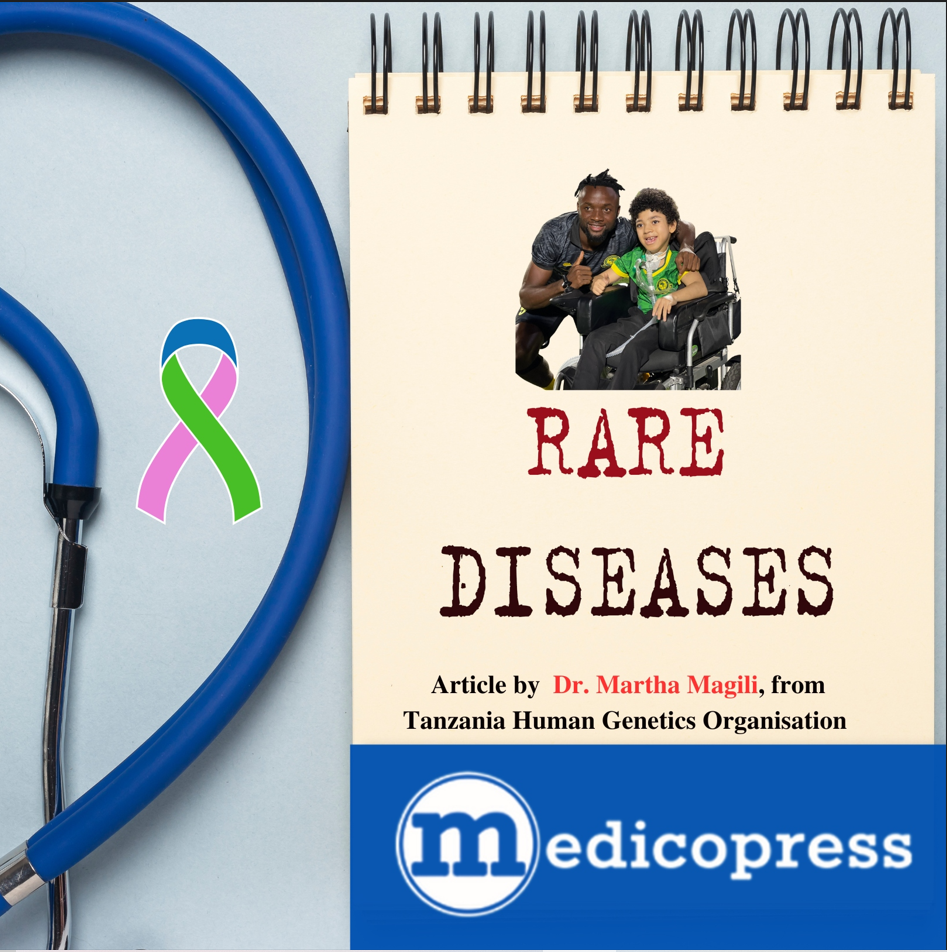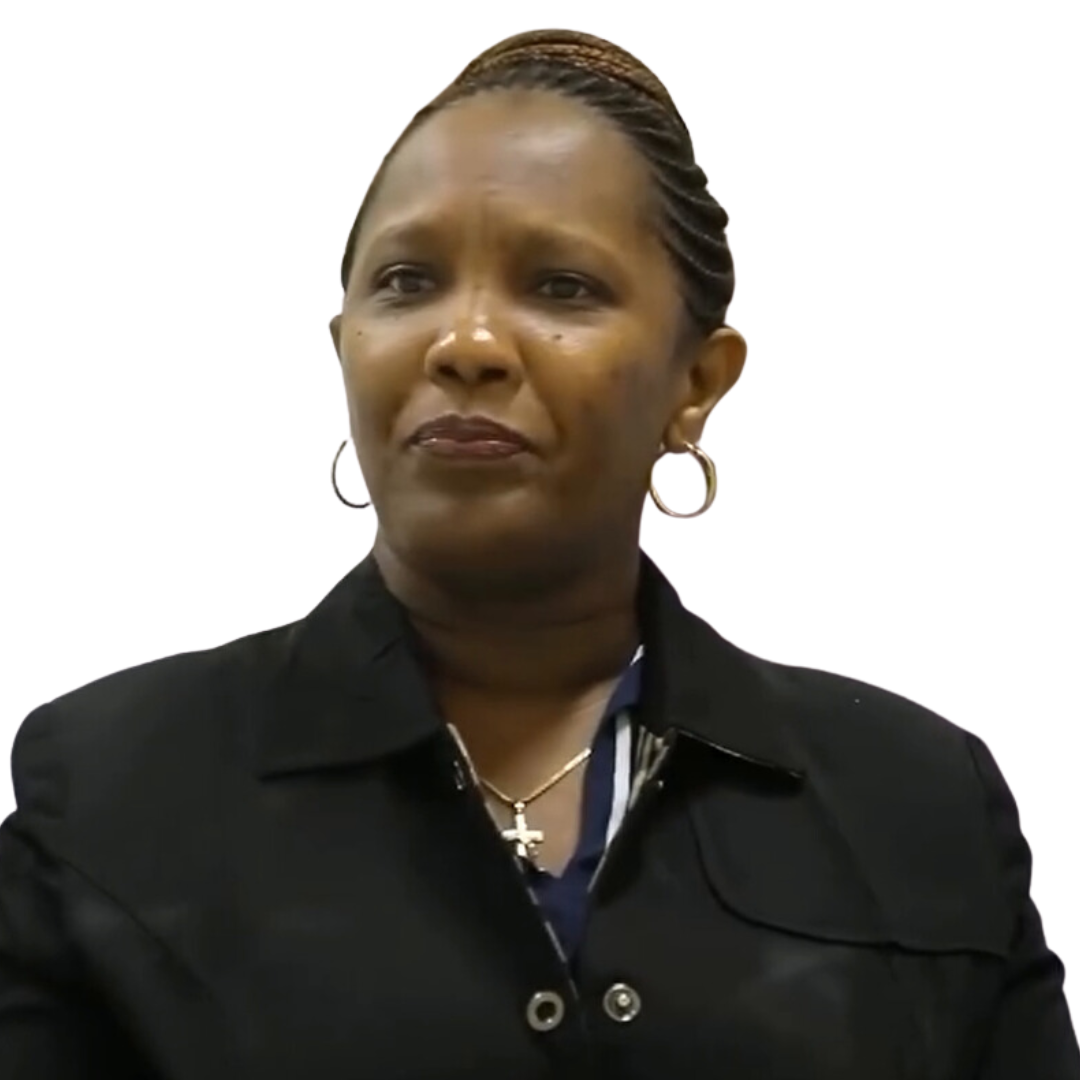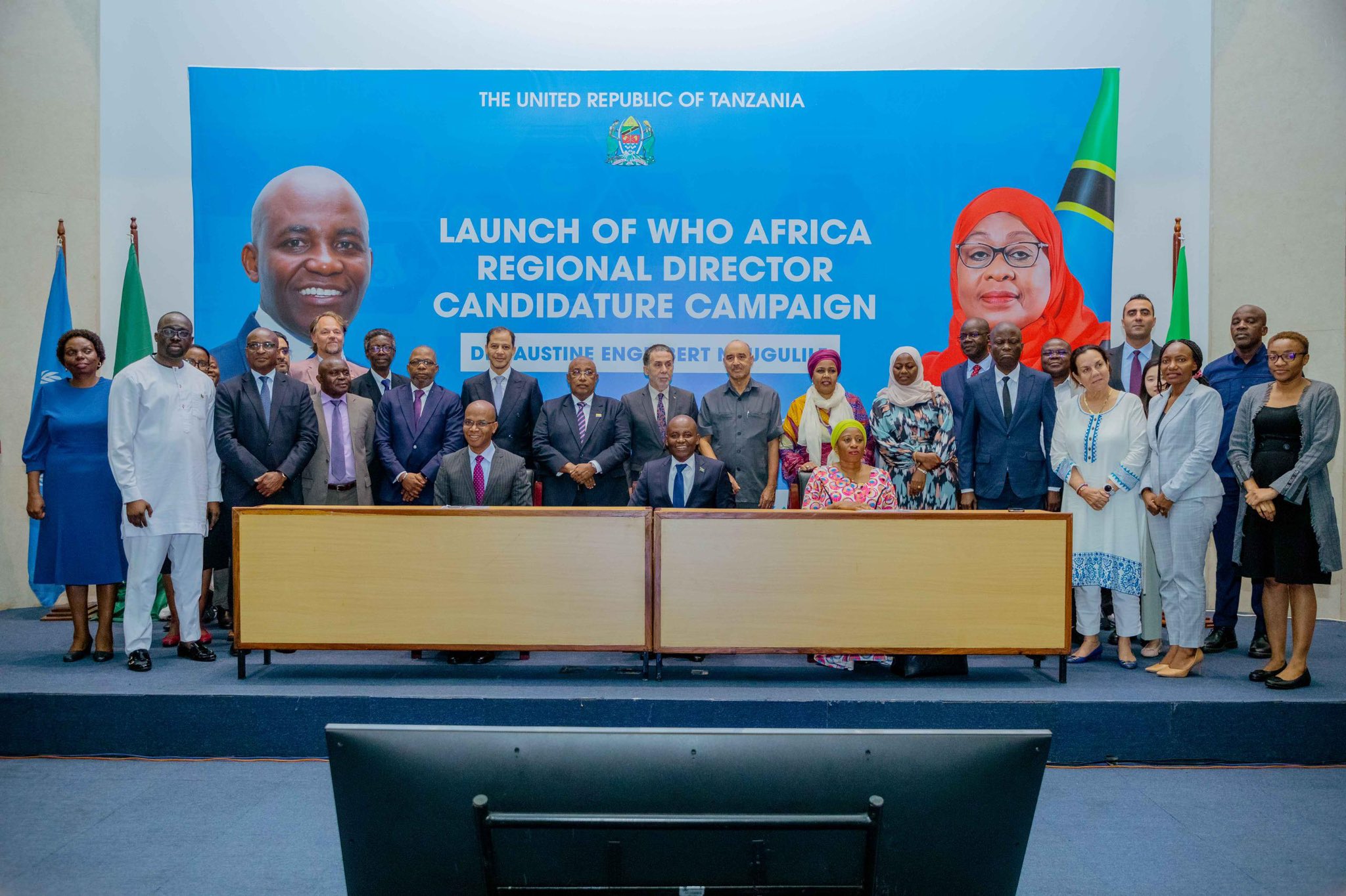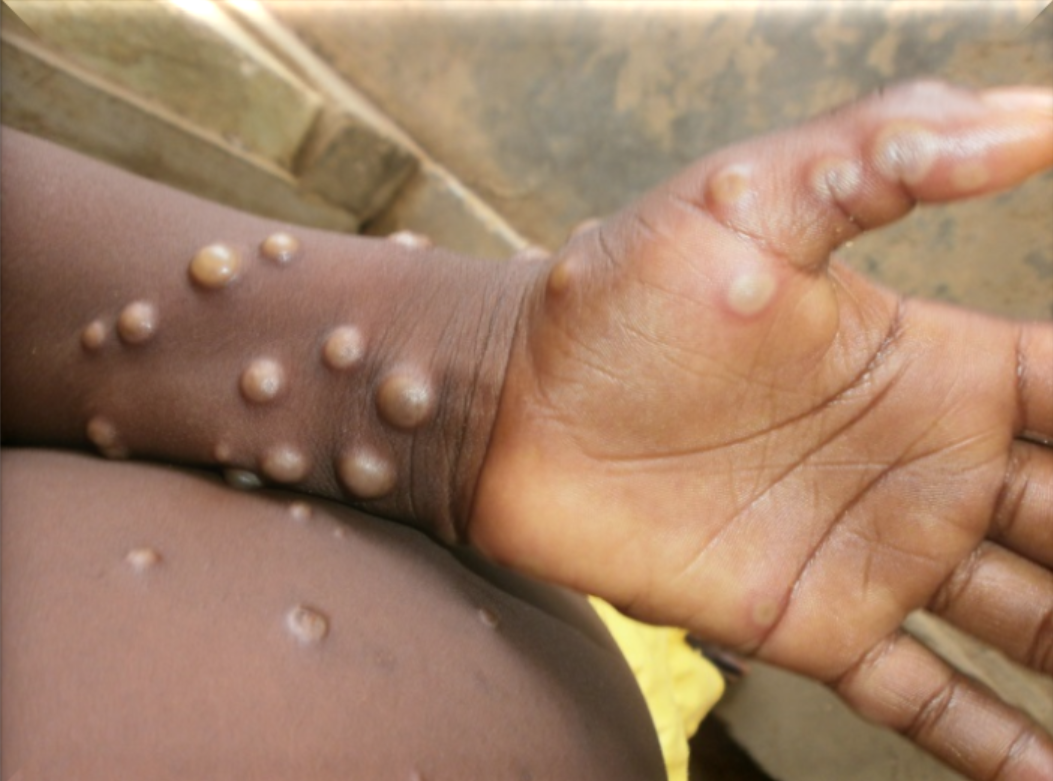Imagine being one of the few people in the world with a mysterious illness that no one can diagnose and nowhere to turn for help. This is the reality for many people living with rare diseases who often face a difficult journey caused by the uncertainty of getting a proper diagnosis and limited access to treatment and care. Rare diseases still receive limited attention and are under-researched in many parts of the world due to the small number of individual patients that rare diseases affect. . Healthcare systems in developing countries are resource-constrained and burdened with infectious diseases such as HIV/AIDS and tuberculosis(TB). This leads to difficulties in accessing lifesaving care for patients with rare diseases and when available, the cost is shouldered by individual patients and their families.
Data from elsewhere around the world show there are around 7000 rare diseases, affecting more than 400 million people worldwide, which is about 5% of the global population. But in Tanzania and many African countries, the full extent of these conditions is still not known due to various reasons including limited resources and research expertise.. There is no data on the type of rare diseases, their manifestations and the number of people they affect. Rare diseases that affect the nervous system and muscles often require lifetime care. Their diagnosis is often difficult and takes time, while medical care is also inaccessible, prohibitively expensive or both. This further compounds the challenge of managing the diseases and including their care in healthcare policies. However, a lot can be done to improve the health and livelihood of people with rare diseases, starting with establishing baseline data, raising awareness among the general public and policy makers as well as genetic screening and counseling.
When is a disease considered to be rare?
A disease is considered rare if it affects a small number of people compared to the general population. Diversity abounds when it comes to defining what a rare disease is. Different world regions and even nations have adopted their own definition, tailoring it to fit their own populations. In Europe, a disease is considered rare if it affects no more than 5 in 10,000 people while a rare disease is the one that affects fewer than 200,000 people in the United States.
Efforts to combat rare diseases in Tanzania
Epidemiological data on rare diseases in Tanzania is missing. Further at the community level, there is lack of awareness about rare diseases, their occurrence being associated with witchcraft and causing stigma to patients. However, there are efforts to change the situation and improve the livelihoods of people living with rare diseases and great strides have been made.
Formation of patient advocacy groups
Several patient advocacy groups have been formed to create awareness about rare diseases and advocate their rights and access to social services, including access to healthcare. These include Ali Kimara Rare Diseases Foundation, Lupus Warriors Tanzania, Epilepsy Organization Tanzania, Malcolm Foundation, Sickle-cell Foundation of Tanzania, Sickle Cell Youth Foundation Tanzania and Myasthenia Gravis Foundation.
These organizations have an overall mission to increase awareness about rare diseases in the community by dispelling myths and combating stigma. They provide support to individuals with rare diseases by promoting access to education and healthcare, launching initiatives to improve diagnosis and disease management. Additionally, they work to ensure that individuals with rare diseases are not excluded or marginalized from society.
Patient advocacy groups have improved the rare diseases landscape in many ways from awareness generation to policy changes impacts. Since 2016, the Sickle Cell Youth Foundation has been actively raising awareness about sickle cell disease through a variety of both online and offline campaigns. These campaigns focus on diagnostics, symposia and debates, blood donation events, in-school testing events, charity walks, exhibitions, and commemorations of Sickle Cell Disease Day.
AKRDF is championing the systemic change in the education sector to allow home-schooling for individuals with rare diseases, with Ali Kimara, a child with a rare disease, being the first student to enroll. Additionally, AKRDF has successfully organized Rare Disease Day annually since 2016 and managed to unite the voice of people with rare diseases. Malcolm Foundation coordinates annual campaigns to raise awareness about muscular dystrophy and promote blood donation, under the name “Asante Daktari” since 2016. The campaign recognizes the efforts of healthcare providers in addressing various healthcare challenges and supports their work through increasing blood supply so that they can do their job well. Since 2018, Lupus Warrior has been actively involved in raising awareness about lupus through various campaigns both online and offline. These campaigns include charity walks, symposia, documentaries, and commemorations of Lupus Day, which involve various stakeholders and celebrate lupus warriors.
Generating awareness, advocacy
Stakeholders in rare diseases, including patient advocacy groups, professional bodies and individuals have been working to create awareness and improve advocacy in Tanzania. One of the key platforms for advocacy has been the rare diseases day (RDD), a global annual event that brings together patients and other stakeholders to celebrate the lives of people with rare diseases, raise awareness and improve access to treatment and medical representation for individuals with rare diseases and their families.
In Tanzania, the first RDD was marked in 2016, organized by the Ali Kimara Rare Disease Foundation (AKRDF). Later in 2020, AKRDF joined efforts with Tanzania Human Genetics Organisation (THGO) to organize an even bigger event with diverse stakeholders. In this RDD commemoration, the guest of honor was Hon. Samia Suluh Hassan, then Vice President of the country. The government made a commitment to improve the livelihood of people living with rare diseases through improved access to social services such as education and healthcare.
Further, a Call for Action was adopted as an outcome of the event whose goal was to set an overall goal of providing better support and resources for individuals with rare diseases.
The Call for Action has been a guiding document for advancing rare diseases advocacy in Tanzania and was published as a paper for future reference and to stimulate more collaborative efforts towards management of rare diseases and improved welfare of other patients. The paper was published in Orphanet Journal Of Rare Diseases and can be read here: https://rdcu.be/c5ZcP
Since the Call for Action in 2020, the Tanzanian government has continued to make significant efforts in implementing the recommendations for people with rare diseases (RDs). In 2021, the government’s commitment to supporting people with RDs was graced by the attendance of the current President, Her Excellency the President of Tanzania, Hon.Samia Suluhu Hassan, at the Rare Disease Day (RDD) event. The government committed to creating a supportive environment for people with RDs by establishing coordinating units within the Ministry of Health, Ministry of Education, and health insurance companies. Additionally, the government committed to creating a registry for people with RDs and promoting home schooling.
In 2022, the Tanzanian government took a significant step towards fulfilling its commitment to supporting people with RDs. The inclusion of the diseases in the Government’s central budget for 2021/2022 shows the government’s commitment to improving healthcare for people with RDs. The government has also formalized home schooling for people with rare diseases, with the enrollment of Ali Kimara as the first student.
Overall, the Tanzanian government’s efforts towards supporting people with rare diseases have shown significant progress and a commitment to improving the lives of those affected by rare diseases. In terms of access to life-saving medicine for rare diseases patients, the government of Tanzania passed an Orphan Drugs Act of 2018, one of the very few in Africa.
Moreover, various stakeholders have joined hands with the government to support rare diseases, such as the Young Africans Sports Club, which organized a fundraising match with the Somalia national team that promoted awareness of rare diseases.
Role of research and way forward
A lot remains to be done to improve the livelihood of people living with rare diseases, from increasing awareness at all levels of the society to improving access to healthcare. In light of the numerous disease-related challenges faced by Tanzania, it is imperative that rare diseases are not overlooked and receive due attention. With the coming of RDD 2023, we reflect on the progress made so far in improving the livelihoods of people living with rare diseases and propose areas of priority in research, access to diagnosis and healthcare as well as healthcare and social services policy.
Establishing the rare diseases burden
The first priority in the fight against rare diseases is to create a registry of the type of rare diseases affecting people in Tanzania, their manifestations and the number of people affected. This data will help to quantify the problem and guide policy, research and intervention efforts. Such an undertaking should involve the ministry of health, research community, rare diseases patients and their advocacy groups as well as other relevant stakeholders to create a dynamic database resource of rare diseases in Tanzania.
At the same time, a rare diseases database should go hand in hand with establishing patient registries and biobanks to provide vital information on history of rare diseases and inform research that may lead to development of new treatment options.
Improve diagnosis capacity
One of the biggest challenges when it comes to rare diseases is proper diagnosis, without which treatment and management of the diseases is not possible. There is a need to invest in appropriate technologies (conventional and molecular methods) to rapidly and affordably diagnose rare diseases early on so as to improve health outcomes of patients. Establishment of dedicated test centers that will utilize modern technologies such as whole genome sequencing for complex or new cases will also help in understanding the diseases better. The government should work with partners to build capacity among healthcare workers to rapidly diagnose rare diseases. Moreover, human capacity building and training of healthcare professionals are also important to allow accurate and timely diagnosis of rare diseases since currently this is lacking. Further, genetic counseling and parents/newborn screening programs of common rare diseases may help to reduce the burden.
Improve access to healthcare
Rare diseases patients need special care and attention, often spanning their lifetimes, which is often costly. A cost-sharing model and/or universal healthcare especially for children suffering from rare diseases may help to lessen the burden on patients and their families. In addition, establishment of rare diseases centers and units, especially in regional and referral hospitals may help efficient and adequate utilization of allocated resources for the patients. It will also help reduce the need for medical tourism and ensure that patients have access to proper care within their own communities.
Rare disease policies
Establishing policies and guidelines that govern the diagnosis, treatment, and support of patients with rare diseases is crucial in improving the quality of life for those affected. To achieve this, the inclusion of a dedicated section for rare diseases within the Ministry of Health is recommended. This would demonstrate the commitment of the government to address the needs of those with rare diseases and provide a clear stance on the matter.
Research and partnership
The diagnosis and management of rare diseases are often delayed due to inadequate knowledge and capacity. Rare diseases are less frequently researched compared to infectious diseases and Non-communicable diseases, primarily due to the small patient population and the heterogeneity of the patient groups i.e. patients present diverse symptoms for similar and different rare diseases. Scientific research will play a crucial role in improving our understanding of rare diseases and eventually their diagnosis, prevention and treatment or management. Formation of public-private partnerships may be key for funding research into diagnosis and treatment of rare diseases. The partnerships among researchers, commercial companies, patient advocacy groups and the government via the ministry of health will also help in pooling resources to study different types of rare diseases. In addition, incentives to the private sector to develop orphan drugs and treatment options via initiatives such as tax breaks and guaranteed markets may be necessary. Collaboration between government agencies, academic institutions, private sectors and patient advocacy groups will help ensure that the needs of those with rare diseases are met and that progress is made in understanding and treating these conditions.
Rare diseases cause debilitating health impacts on patients but they have received limited attention for a long time, leaving the burden for healthcare and associated costs on the patients and their families. It’s important to continue to shed light on the challenges faced by individuals with rare diseases and to advocate for their needs while we establish diagnostic, research and treatment capabilities. All interventions aimed at addressing the challenges associated with Rare Diseases in Tanzania may not be successful without proper policy frameworks and government support. With the collective efforts of patients, families, healthcare professionals, and researchers, we can work towards a better future for people living with rare diseases.
Dr. Aneth David and Dr. Mohamed Zahir contributed to this article. They are also members of the Tanzania Human Genetics Organization (THGO) and strong advocates of Rare Diseases in Tanzania.








